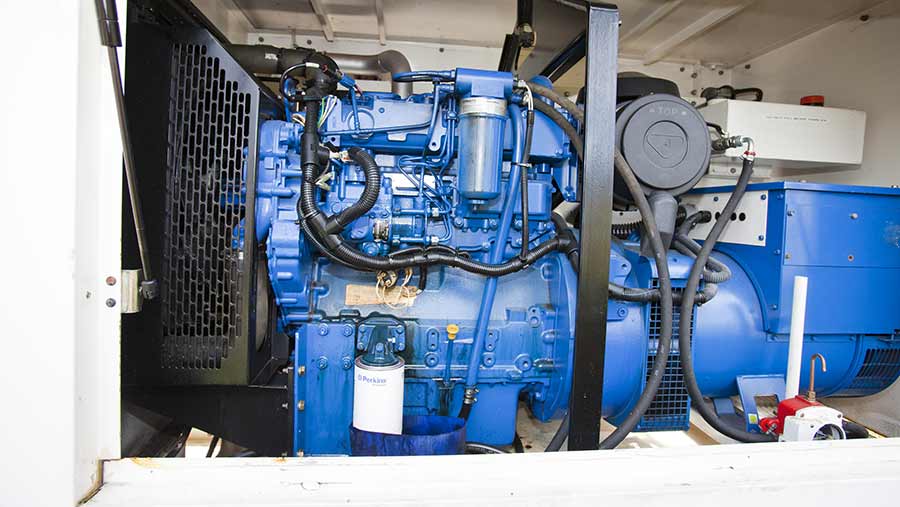Business Clinic: Backup generators can earn extra cash
 © Global Warming Images/REX/Shutterstock
© Global Warming Images/REX/Shutterstock Farmers Weekly’s Business Clinic experts offer free advice on legal, finance, tax, insurance, farm management and land issues.
Here Ben Pratt – energy consultant at Savills – advises how to make more from farm generators.
Q: I have a diesel generator that I don’t use most of the time. I have heard I can make money from it by generating power for the National Grid. How does this work?
A: The UK faces a shortfall in energy supply over the next decade as large power stations come off line with few planned replacements.
National Grid is responsible for maintaining the UK’s electricity network and is procuring reserve services. As a result, anyone who owns a standby generator can benefit from a relatively low-risk income.
The reserve capacity is co-ordinated through organisations known as smart grid companies. These aggregate the capacity of several generators, building a large portfolio that will come on line at the same time as a “virtual power station” when there is a national energy shortfall.
See also: Business clinic – grants for farm meat processing conversion
Any generators that can produce power on demand such as diesel and gas engines are eligible. The generator is connected to the national grid via an export connection. It is also upgraded to reach peak load within 30sec of switching on. Communications equipment is installed to allow it to be turned on remotely at the right time.
The time of operation is dictated by requests from National Grid. Typically this is during winter peak energy periods in the evening from 5pm-8pm and in the morning from 7am-9am, but it could be at other times such as during broadcast of a World Cup final.

Ben Pratt
Energy consultant, Savills
For much of the time the generator won’t operate, but the National Grid contract will still ensure income is paid. The smart grid company will monitor and operate the generator and collect income on your behalf, paying you quarterly.
The generator remains your property for the term of any agreement, but check that you can still use it when you need to.
It is in the interest of the smart grid company to ensure the maximum value for generation is achieved. This means a 1MW generator can earn a low-risk income in the region of £60,000/year for a minimum three-year contract, after running and maintenance costs.
For those who have already invested in a generator, the risks are relatively low – the smart grid company will arrange grid access, although the generator owner may have to pay for new G59 relay switchgear, typically costing £20,000-£30,000 for a 1MW generator.
Check the terms of any offer carefully and consider using someone independent to ensure the smart grid company has correctly calculated the actual available load, allowing for any use you might make of the generator.
Make sure the company carries out a full engineering inspection of the generator and establish what you will need in terms of any grid connection and its cost. You also need to ask how many hours the generator will be used on average.
Planning permission may be required for some new installations, but achieving this is not likely to be a big challenge in most circumstances.
Do you have a question for the panel?
Outline your legal, tax, finance, insurance or farm management question in no more than 350 words and Farmers Weekly will put it to a member of the panel. Please give as much information as possible.
Send your enquiry to Business Clinic, Farmers Weekly, RBI, Quadrant House, The Quadrant, Sutton, Surrey SM2 5AS.
You can also email your question to fwbusinessclinic@rbi.co.uk or post it on the Farmers Weekly website.

